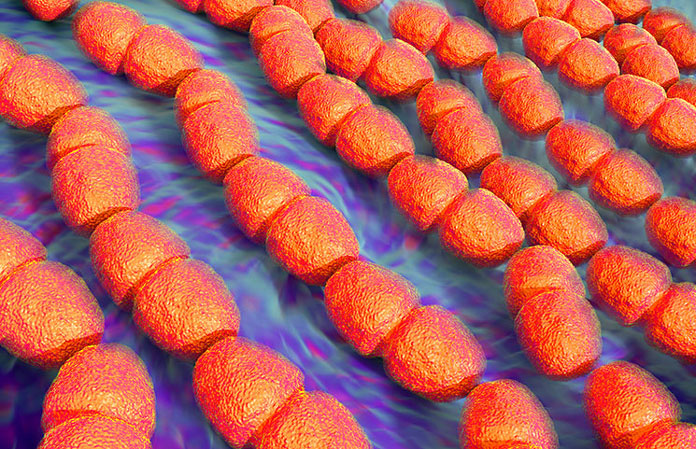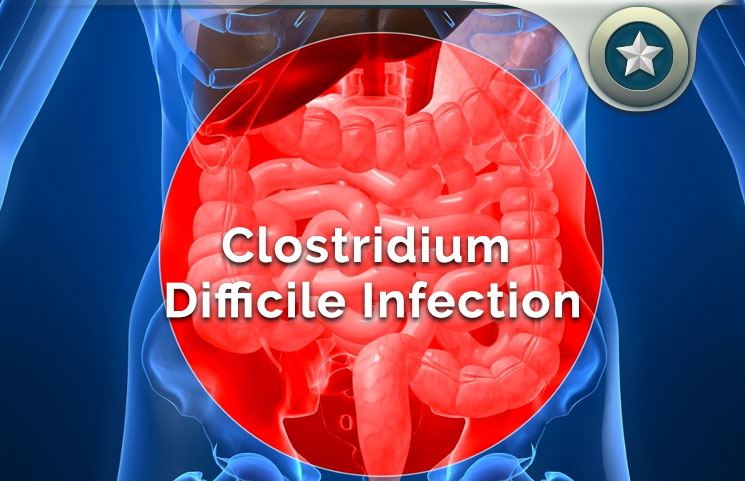Clostridium Difficile Infection, most commonly known as CDI, C. difficile, or C. diff, is a bacterium that can infect both humans and animals. The symptoms of CDI can range from simple diarrhea to possibly fatal inflammation of human's colon.
What Is Clostridium Difficile?
Clostridium Difficile naturally occurs in the intestines of many people. It is commonly present in the gut or the intestinal tract of younger people but levels drop off as we age. As of today, Clostridium Difficile is present in 66 percent of babies and just 3 percent of adult people.
Healthy and fit people are not usually that much affected by Clostridium Difficile. However, some medicines, specifically antibiotics, may adjust the scale of good bacteria in your gut, which will allow for the bacteria to multiply and lead to diarrhea, and possibly to a more serious illness.
Most common cases of Clostridium Difficile infection occur in places that are linked to antibiotic therapy such as a healthcare environment. This is because a significant number of patients that are hospitalized are on antibiotics.
As a note from people from the Science field, older people are more sensitive to the infection for this disease. Also, they are more likely to experience the worse symptoms. For example, in the year 2010, more than 90 percent of all recorded death instances are due to Clostridium Difficile that occurred in people age 65 and above.
Most patients with Clostridium Difficile infection improve their health completely without any consequences though some have complications and do not survive. For those who do survive, there is a possibility that they will be infected again with the same infection and disease after the treatment. Back in 2011, as reported by the Centers for Disease Control and Prevention or CDC, there is half a million infected patients by the Clostridium Difficile infection. However, there is always a concern about the rising numbers of patients.

Risks And Side Effects Of Clostridium Difficile
Here are the signs and symptoms that can occur in a person as a result of C. difficile infection.
- Mild to severe watery diarrhea
- Elevated body temperature
- Mild abdominal cramps and tenderness/tummy ache
The symptoms mentioned above are generally caused by Inflammation of the large intestine.
Here are the possible causes:
- Peritonitis – it is the infection of the lining of the abdomen
- Septicemia – it is the blood poisoning
- Perforation of the colon
Other signs and symptoms are given here. These are most noticeable in more severe cases:
- Dehydration
- Elevated body temperature
- Loss of appetite
- More severe abdominal cramping and pain
- Nausea
- Pus or blood in stool (feces)
- Watery diarrhea – the patient may go to the toilet ten or more times in a day
- Weight loss
Clostridium Difficile infection can be fatal, in other words, it is deadly. However, this result is very rare. One of the major risks of a life-threatening condition is much higher among older patients, as well as people with existing serious health conditions.
Most symptoms of Clostridium Difficile infection occur in patients who are or have been taking antibiotic medications. It is not uncommon for symptoms to appear weeks after antibiotic intake or therapy has stopped.
Most cases of Clostridium Difficile infections occur in hospitals, medical centers, or any establishment that provide healthcare solutions where germs may spread to all people. In reality, hospitals and medical places have a high and significant number of people with weak immune systems.
The list below is the group of people who have a higher risk of becoming ill from the Clostridium Difficile infection:
- Patients who are or were recently taking antibiotics
- People age 65 years and above
- Anybody who has been hospitalized
- People who are taking care of other people or living in a long-term healthcare facility
- Patients with medical conditions which make their immune system weak
- Patients who have had gastrointestinal or abdominal surgery
- Colon disease patients
Healing Clostridium Difficile
For patients with complicated Clostridium Difficile, a gastroenterological consultation may be a big help for consideration of a colonoscopic assessment.
A detailed surgical consultation is recommended for patients especially those who are suspected fulminant toxic megacolon, colitis, or peritonitis. If a certain patient has taken any generic antibiotic medicine during the appearance of symptoms, the attending doctor will assess if the antibiotic can be possibly stopped.
In addition to that, the doctor will also start a new antibiotic to treat the Clostridium Difficile infection and may consider other therapies to treat the disease.
Antibiotics
This is a standard treatment for Clostridium Difficile infection.
Nevertheless, a different type of antibiotic must be given to a patient if he/she was on an antibiotic when symptoms started. With just mild symptoms, the doctor might prescribe metronidazole (Flagyl). Meanwhile, for more severe symptoms of the infection, vancomycin (Vancocin) may be given.
Probiotics
Most common types of bacteria and fungus help you to restore a healthy and balance intestine. Natural yeast called saccharomyces boulardii, together with a specific antibiotic, has been discovered to help reduce recurrences of Clostridium Difficile infections.
Surgery
If a patient has Clostridium Difficile symptoms and is considered by doctors to be a severe case, it may be required for him/her to surgically remove the diseased part of the colon. Surgery may also be necessary if there is an organ failure or breach of the lining of the abdominal wall.

Bacteria Cocktail
A group of scientists from England, known as the Wellcome Trust Sanger Institute, successfully wiped out Clostridium Difficile infection in mice.
They found that the infected mice were totally cleared of this highly infectious Clostridium Difficile strain when they introduced a cocktail of six naturally occurring bacteria.
Fecal Transplantation
This is the process of transferring stool from a healthy donor to the gastrointestinal tract of the target to treat recurrent Clostridium Difficile colitis. Nowadays, fecal transplants are being used in chronic cases of Clostridium Difficile infection.
Fecal transplantation happens when the bacteria from a person's colon are transferred into the colon of another person that is infected with Clostridium Difficile. Recently, this kind of treatment has been used for people who had multiple infections.
Clostridium Difficile Infection Final Words
Since Clostridium Difficile spores can live long term on different surfaces so you should always use good hygiene to avoid the bacteria. Always wash your hands thoroughly. Use soap and clean water when doing so. Do not use antibiotics unless your attending doctor recommends or prescribes them.
If you are planning to visit someone in a health care center or hospital, wash your hands before and after your visit. Always remember that the prevention of having Clostridium Difficile infection will start with you.









